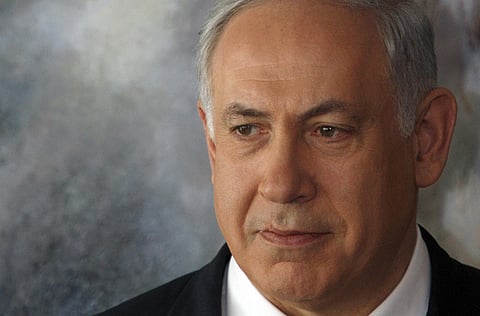Netanyahu won't change unless he is confronted
Only the US president has the power to rein in the Israeli leader and convince him to abide by international law

Much as the Palestinian leadership would welcome the US financial commitment to the tune of $400 million (Dh1.5 billion) to alleviate, in part, the deplorable situation in Gaza, President Barack Obama's announcement at the end of his one-hour session Wednesday with Palestinian National Authority President Mahmoud Abbas fell short of the high expectations.
The Palestinians, as many others elsewhere, were hoping that in the wake of Israel's recent massacre of nine pro-Palestinian activists, including an American citizen, aboard the aid-carrying flotilla of six Gaza-bound ships, the American leader would have been more assertive.
As a matter of fact, the Palestinian leader had told an investment conference in the Israeli-occupied West Bank last week that his message to the American leader is that "we need bold decisions to change the face of the region". However, after their meeting at the White House, Obama only acknowledged that it was "important for us to explore new mechanisms so that we can have goods and services, and economic development, and the ability of people to start their own businesses, and to grow the economy and provide opportunity within Gaza".
There is no doubt that Obama "cares deeply" about the Palestinian-Israeli issue, as he said, and he promised "to go ahead and move forward on a two-state solution that will affirm the needs of Israeli citizens and will affirm the needs of Palestinians — Palestinians who are desperate for a homeland".
He went on: "And that means on the Israeli side, curbing [colony] activity and recognising some of the progress that has been made by the Palestinian Authority when it comes to issues like security. It means on the Palestinian side — and I was very frank with President Abbas that we have to continue to make more progress on both security as well as incitement issues".
Yet, there was no evidence of any boldness in Obama's public statements. Sorely missing, for example, was any outright condemnation of the Israeli assault on the aid-carrying flotilla, as voiced by other international leaders. One would have expected that the Obama administration had come up with some practical steps to lift the unjustified Israeli blockade on Gaza, where some 1.5 million impoverished Palestinians have been living under a tight siege imposed by Israel and, shockingly, Egypt. According to Amnesty International, "mass unemployment, extreme poverty and food price rises caused by shortages have left four in five Gazans dependent on humanitarian aid". Israel's continuing blockade of Gaza, a form of collective punishment, is considered a flagrant violation of international law.
Obama did acknowledge belatedly that the situation in Gaza is "unsustainable", becoming, as the BBC put it, somewhat critically, "the latest of a long line of major figures to describe the Israeli blockade" in this fashion.
Deterred
During a recent meeting with Jewish congressmen, Obama was said to have made "an overtly self-deprecating comment", saying he had stepped "on a few mines as he took his first steps in the Middle East". Akiva Eldar, the Haaretz columnist, reported that "the [Jewish] delegation left the White House assuaged, feeling perhaps that a president who has been hurt by mines would be wary of much bigger [Israeli] bombs", and went on to conclude that "it appears that the Obama administration has realised that it will not succeed where its predecessors have failed" in bringing about peace in the Middle East. In other words, "why should he fight with the Jews ... when Republicans are threatening to take over the House of Representatives in six months ... ?"
One wonders whether Obama has been watching closely the ugly campaign launched by pro-Israeli elements within the media and outside against the much-respected and admired White House correspondent, the 89-year-old Helen Thomas, a Lebanese-American. If so, the president ought to realise, as Alison Weir, executive director of If Americans Knew, noted in an article published in Counterpunch, that "whenever Israel commits yet another atrocity, its defenders are quick to redirect public attention away from the grisly crime scene".
By all calculations, the Israeli attack on the Freedom Flotilla was a fiasco and one for which it should have to pay a heavy price. Yet, surprisingly, there is no evidence within Israel of any major movement to pull the rug out from under the Benjamin Netanyahu government, probably because he has managed to convince both the left and the right to join his government. Without a serious American confrontation, argued Dr Assad Ganem, a visiting professor from Haifa University, the Israeli prime minister has nothing to worry about.
George Hishmeh is a Washington-based columnist. He can be contacted at ghishmeh@gulfnews.com.


